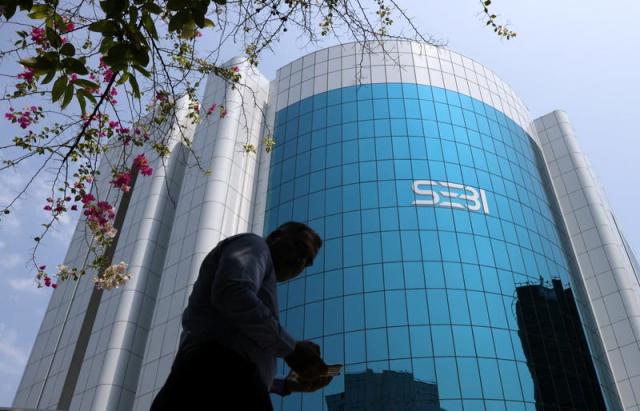SEBI Validates Chandra’s Claim, Dismisses Another in ZEE Case
In a significant development in the ongoing legal proceedings surrounding the ZEE case, the Securities and Exchange Board of India (SEBI) has accepted one claim presented by Mr. Chandra while rejecting another. The case, which has captured the attention of investors and the financial community alike, has taken a new turn as SEBI renders its verdict on the claims put forth by the parties involved.
The Accepted Claim
The claim accepted by SEBI pertains to the alleged violation of regulatory norms regarding insider trading. Mr. Chandra, a prominent figure in the media and entertainment industry, had asserted that he was not privy to any non-public information prior to certain trading transactions. SEBI’s examination of the evidence provided by Mr. Chandra and his legal team concluded that there was no concrete basis to establish his involvement in insider trading activities. This ruling is seen as a significant victory for Mr. Chandra, as it removes a cloud of suspicion that had lingered over his reputation.
The Rejected Claim
On the other hand, SEBI has rejected a claim filed by Mr. Chandra relating to the alleged unfair practices carried out by a rival media conglomerate. The claim suggested that this rival company had engaged in manipulative tactics to gain an unfair advantage in the market, thereby causing financial harm to ZEE. SEBI’s decision to dismiss this claim was based on a lack of substantial evidence that could definitively link the rival company’s actions to the financial setbacks faced by ZEE. While Mr. Chandra’s legal team had presented compelling arguments, SEBI’s decision underscores the necessity for clear and irrefutable evidence when making such allegations.
Industry Implications
The outcome of SEBI’s verdict has far-reaching implications for both the media and entertainment sector and the broader business community. The acceptance of Mr. Chandra’s claim concerning insider trading bolsters the credibility of regulatory oversight, sending a strong message that unlawful practices will not be tolerated. This could potentially lead to increased investor confidence in the industry, encouraging transparency and ethical conduct.
Conversely, the rejection of the claim against the rival company raises questions about the burden of proof required to establish allegations of unfair practices. It serves as a reminder that unsubstantiated claims, no matter how high-profile or influential the parties involved, will not be upheld without concrete evidence. This emphasizes the importance of thorough investigative procedures and a robust legal foundation when pursuing allegations of this nature.
Legal Precedent
SEBI’s ruling in the ZEE case could set a legal precedent for future cases involving insider trading and unfair market practices. The decision demonstrates that SEBI is committed to impartially evaluating claims based on the merits of the evidence presented. Legal experts anticipate that this case will be closely studied by legal scholars and professionals alike, serving as a guidepost for navigating similar complex financial disputes.

Investor Sentiment
The ZEE case has been closely monitored by investors, shareholders, and market analysts. The outcome of the SEBI verdict is likely to influence investor sentiment towards ZEE and other companies operating in the media and entertainment sector. The acceptance of Mr. Chandra’s claim may lead to renewed interest from investors who were previously cautious due to the allegations against him. Additionally, the overall trust in the regulatory framework could receive a boost, enhancing the investment climate.
Moving Forward
As the legal proceedings continue to unfold, it remains to be seen how this verdict will impact the trajectory of the ZEE case. The decision sets the stage for potential future legal actions, as parties involved may seek to appeal SEBI’s ruling or pursue alternative avenues of resolution. The case underscores the complex interplay between legal frameworks, market dynamics, and regulatory oversight in shaping the landscape of the financial sector.
The SEBI verdict in the ZEE case has sparked discussions within legal and financial circles about the intricacies of proving allegations in the dynamic world of the stock market. The rejection of Mr. Chandra’s claim against the rival company underscores the importance of thorough due diligence before making serious accusations that could have far-reaching consequences. This incident serves as a cautionary tale for companies and individuals who may be tempted to rush into making claims without comprehensive evidence to support their allegations.
The acceptance of Mr. Chandra’s claim related to insider trading also highlights the evolving nature of regulatory mechanisms in the financial sector. As technology continues to advance, ensuring that individuals have equal access to information becomes a more complex endeavor. SEBI’s decision not only reinforces the need for transparency but also emphasizes the need for vigilant monitoring and enforcement to prevent insider trading, a practice that can undermine the integrity of financial markets.

The media attention and public interest generated by the ZEE case have also brought to the forefront questions about the role of media coverage in shaping public perception of legal proceedings. The way the case has been covered by various media outlets, both in terms of reporting and commentary, has the potential to influence public opinion and investor confidence. The outcome of the case, as determined by SEBI, serves as a reality check against sensationalism, reminding stakeholders that the legal process is complex and requires adherence to established procedures.
In conclusion, the SEBI verdict in the ZEE case serves as a critical juncture in the ongoing legal saga, offering insights into the intersection of finance, law, and media scrutiny. The decision to accept one claim while dismissing another sends a clear message about the importance of substantiated evidence and diligent regulatory oversight. As legal proceedings continue, the ZEE case will likely remain a case study in legal and business circles, shaping discussions about corporate conduct, regulatory frameworks, and the evolving expectations of investors and the public.




